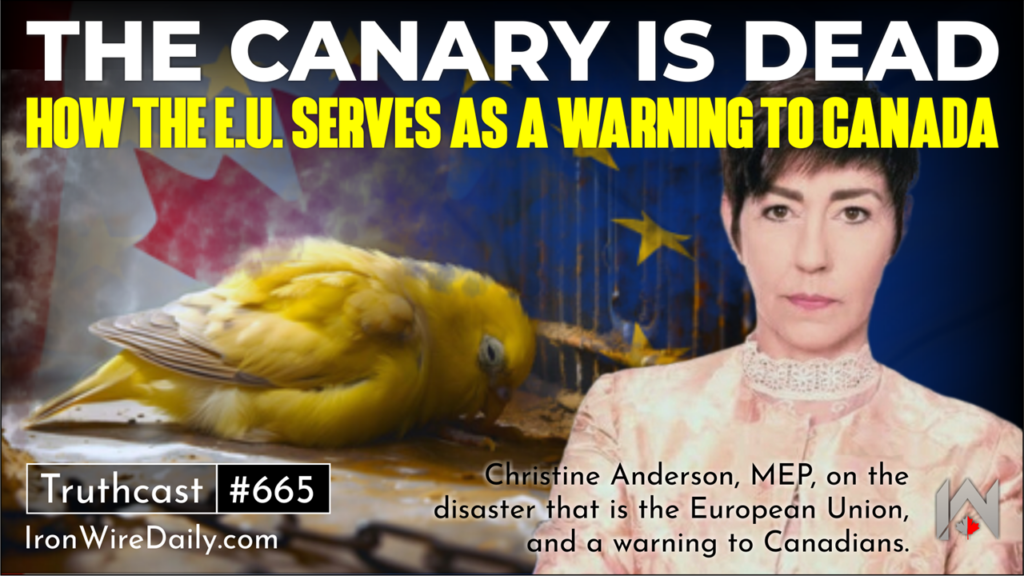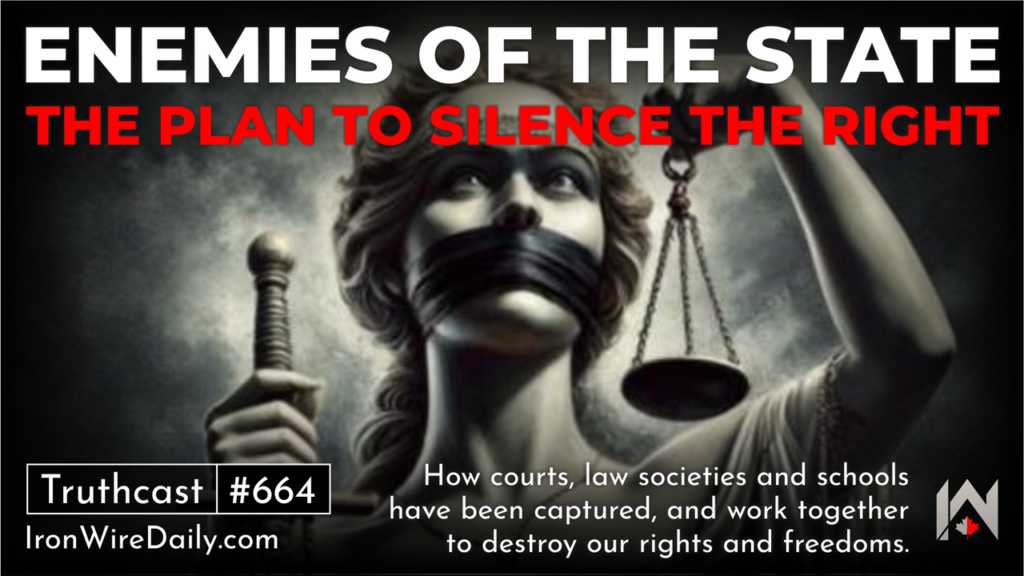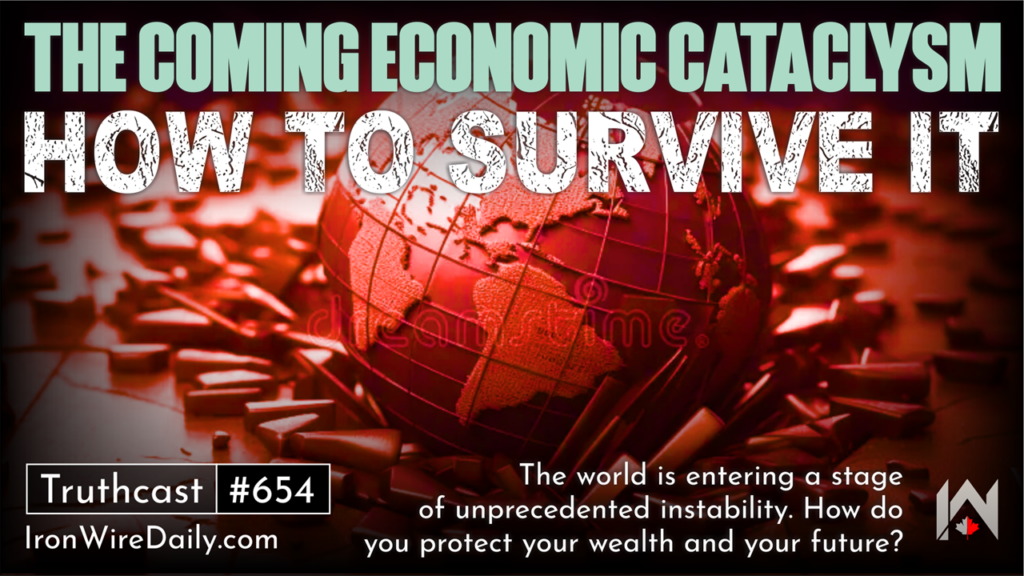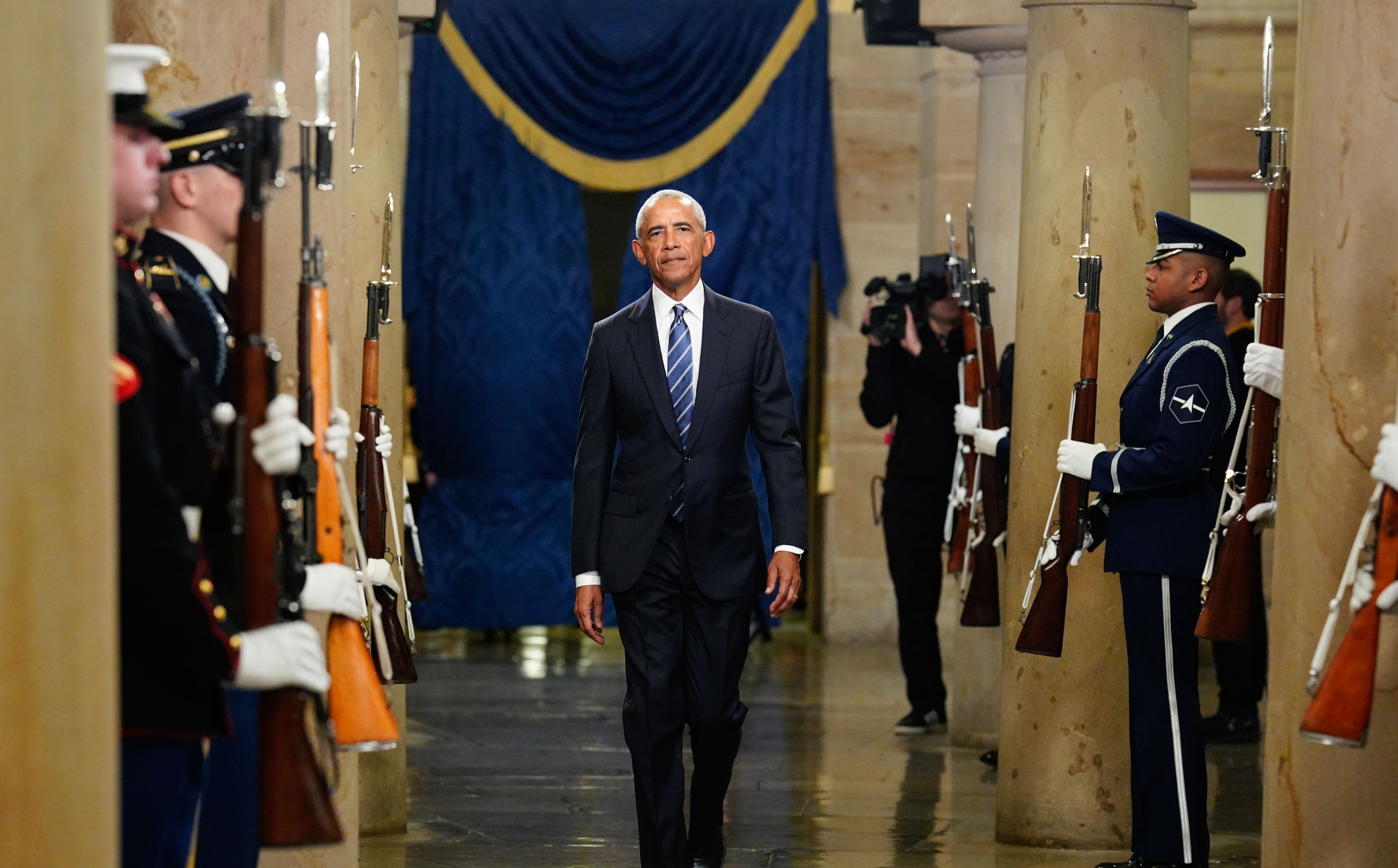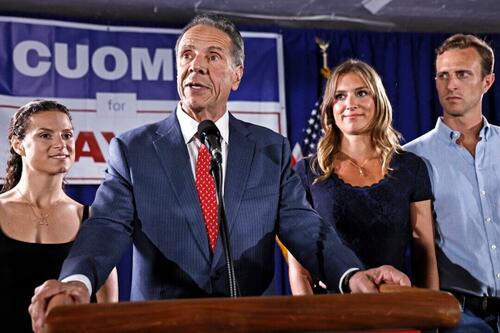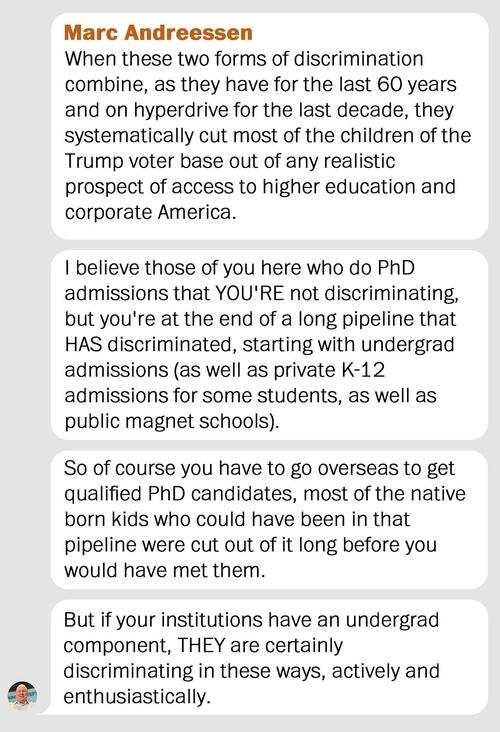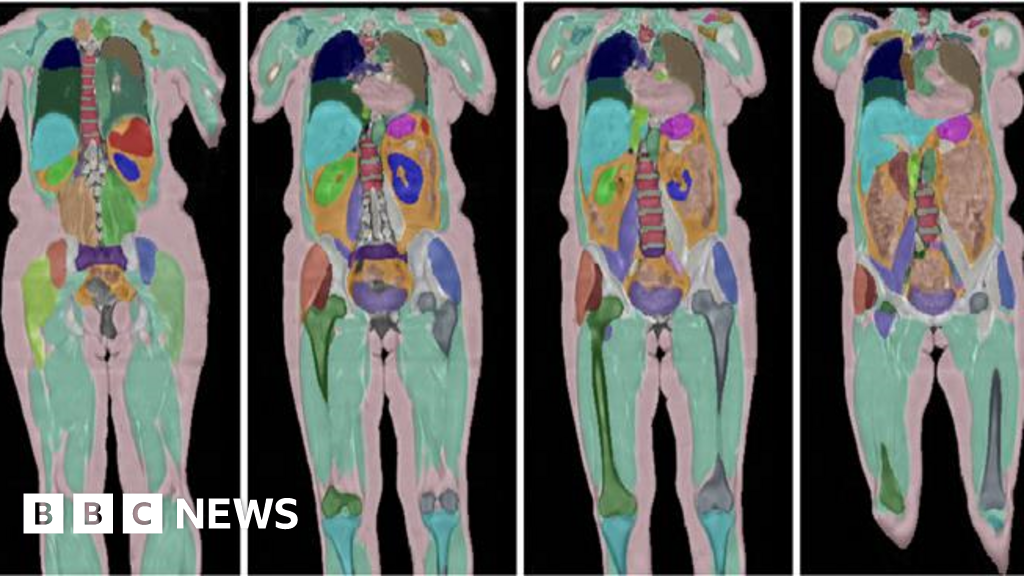(0:00 - 1:41)
I've done quite a number of interviews in the past few years on the corruption of our courts. Courts that used to adjudicate the law, independent of societal or government ideologies, but by and large no longer do. The Coutts 4, Tamara Lich and Chris Barber, Pastor Art Pawlowski, and many others.
Law-abiding Canadians who exercised their charter rights to freedom of speech, freedom of assembly, and security of the person, and were persecuted for that by the very courts that should have been protecting their rights. But what I have not yet done is an interview that connects the dots and explains how everything, not just the corruption of our courts, but also how law societies, universities, schools, and local governments have been taken over by the globalist agenda for one singular purpose. Not to take from us our rights and freedoms, but to have Canadians voluntarily surrender them.
Glenn Blackett is a lawyer with the Justice Centre for Constitutional Freedoms. He is currently engaged in legal battles which together demonstrate that the fight for our rights and freedoms in our courts is far from over. In the course of this discussion, you will learn just how far off the rails our legal system has gone, and you will understand how that is just a small part of the globalist plan to destroy our society and erase conservative values, to make of us enemies of the state.
(1:50 - 2:00)
Glenn, welcome back. Thank you very much. I wanted to bring you in because we were talking not long ago at a JCCF event, and you and other lawyers from the JCCF were talking about the cases you're doing.
(2:01 - 2:26)
And I think that there's this impression on the part of a lot of Canadians that the persecution, the violations of our rights and freedoms that have been upheld by the courts are somehow over, that that's not going on anymore. And that's not true at all. The JCCF is still very busy representing Canadians whose rights have been violated.
So would you please give us a summary of some of the cases you're working on? Sure. Yeah. I mean, I'm working on a couple of files.
(2:26 - 3:20)
One that we talked about last time I was here, which is the Frances Widdowson versus University of Lethbridge file, which is effectively a campus free speech file. It involves a university which, like many universities, has undergone a process of indigenization, which is, you know, I mean, introduction of indigenous ways of knowing. And for the purpose of the Widdowson file, what's important in that indigenization process would be making the campus a safe space for indigenous students, which means effectively insulating those indigenous students from ideas that they would find traumatic.
And Frances Widdowson has many ideas that, according to indigenization theory, would be very traumatic for indigenous students. So she was not allowed to speak on campus for that reason. So we've sued the University of Lethbridge for that violation.
(3:21 - 4:01)
It's an interesting case too, because across Canada, there is mixed case law as to whether or not the Charter of Rights and Freedoms even applies to universities, which I think is kind of crazy. If you look at the cases that established the precedent in the 1990s, basically what the Supreme Court of Canada said was, well, in order to, well, one reason that we apply the Charter of Rights and Freedoms to an organization is if that organization is controlled by government. And then they looked at governments in, or sorry, they looked at universities in Ontario and BC and a college, and they found that, okay, they're not sufficiently controlled by government to be government for the purpose of making the Charter apply to it.
(4:02 - 6:25)
If you take that same principle that, you know, if there's sufficient control, then the Charter applies because the thing becomes basically an entity of government. And you look at the facts today, it's pretty clear that today universities are much more significantly controlled by government, very highly controlled by government. You know, the nuts and bolts or the sort of details are left to the university to iron out, but on an ongoing regular basis in great detail, governments, so far as I know across Canada, but definitely I'm aware in Alberta and BC, governments are really involved in the control of universities.
They assign them on an annual basis, several sort of duties that they have to fulfill. They have ways to measure their performance against those duties they're supposed to fulfill. And of course they fund them massively, which has always been the case, but massive funding.
So my view is that if you take those legal principles, which is that the sufficient government control means that the Charter applies and you apply them to the facts today, then the Charter should fully apply to universities. The only provinces, well, the only provinces where the courts have recognized some degree of Charter applicability to universities is Manitoba, Saskatchewan, and most especially Alberta. And in Alberta, basically the Court of Appeal found that universities, insofar as they regulate campus free speech for students, they attract Charter scrutiny, which is an odd finding.
It's odd that it's such a narrow way that it applies. Anyway, so the Widdowson file is interesting and important because one of the arguments we're running there is that the Charter should apply to universities in a much broader way. Basically they should just apply to them whole scale as an entity of government because they very much seem to be an entity of government.
And just before we move on to other cases, what do you think of the recent law in the UK that protects freedom of speech on campuses? Well, I mean, that's great. I mean, we should definitely have laws. And to some small extent, we have those kinds of laws in Canada.
(6:28 - 8:42)
I think that free speech is very important. It's one of the most important parts of the Charter as it relates to a campus. But the Charter is much broader than just free speech, obviously, which that's section 2b.
But there's also section 2a, which is freedom of conscience. And to some extent, I think that the problems that we see on university campuses today involve also problems of infringing on freedoms of conscience, freedom of religion, freedom of assembly. And even with the vaccine mandates, for example, perhaps section 7 violations, so freedom of, or your security of the person.
So, you know, so, I mean, it's a step in the right direction. But I think that, you know, because the Charter has a lot more teeth than just freedom of speech, that the Charter could be and should be more robust constitutional protection on campuses. Okay.
Now later on, we're going to talk in detail about another case you're working on with Roger Song and the Law Society of Alberta. But do you have other cases as well? Yeah. Yeah.
So there's the University of Lethbridge case. I'm running a similar case in BC that's been going on for some time now against the University of British Columbia. And that arises out of a 2020 event, planned event at the University of British Columbia's downtown campus, where a student group called the Free Speech Club, which had done a number of campus free speech events, had invited Andy Knoll, who like NGO, he's, I think he's a Portland based kind of specialist in Antifa journalist in the US.
I think he works mostly for the Postmillennial now. Anyway, he was going to come up and give a speech on Antifa violence. And lo and behold, in large part because of the threat of Antifa violence, the University of British Columbia decided to cancel it.
Yes, of course it did. Yeah. Yeah.
Yeah. Oh, wow. All right.
(8:42 - 11:04)
Well, and if you look at the, if you look at the history of that file too, it doesn't look to me like it was really a concern for physical safety. And in fact, they've expressly said that it was to some degree, and I would say entirely, in the interest of preserving, again, like the University of Lethbridge case, psychological safety. So the view was that, again, if you have these, you know, Andy Knoll, he's, because he covers and reports on and, you know, I think discloses some of the problems with Antifa violence in the United States, the university, you know, basically, he's a, he's kind of on the, he's not, he's not firmly on the left wing of politics anymore.
And, uh, there was some communication to the university about the fact that, oh, he's coming onto campus and he's a right-wing provocateur, which I don't think is, is a fair description of him at all. Um, but nonetheless, it was that attribution of the right-wing political, um, affiliation that seemed to be one of, if not the driving factor for the cancellation of it. Um, so in any case, um, we're in, uh, we're fighting the same basic fight in, in BC to see that the charter applies to, uh, to universities.
That case is pretty interesting. We've been to court now, uh, once we went before, uh, would have been, uh, 2023. Um, we went, yeah, we went before justice Greenwood of the BC superior court.
Um, and he determined that the charter doesn't apply to university of British Columbia. Um, if you look at the decision, though, it's pretty interesting because again, like I mentioned before, what we're supposed to do is we're supposed to look at old cases, take these legal principles, and then apply them to the facts today. And what that, what I think justice Greenwood, his error was, was he looked at the facts of the old case.
He looked at the facts of what was happening in 1990 and he applied those facts to today, which is backwards. So he basically looked at a case in the 1990s that said, well, today, based on the current facts, the government does not control the university. And so justice Greenwood determined that, well, then today governments do not control universities based on the case law, but that's not how it's supposed to work.
(11:04 - 12:05)
Yeah. There's a couple of things that are probably puzzling me about that one. Okay.
So this is justice Greenwood, um, determines that the charter doesn't apply to the universities, but this, that's my question. Number one, the charter of rights and freedoms is supposed to apply to all Canadians, right? So how are they, how are they justifying this idea that the charter doesn't apply to a university? Well, I mean, it definitely protects all Canadians. Um, well, I mean, to the extent that it provides protection, it protects all Canadians, but it, it only, um, it only governs the conduct or restricts the, the ability of certain entities to do things.
So if you are a, uh, let's say you're an employee with a private employer and the employer does something, which is a breach of your, you know, privacy rights or something like that, that's not a constitutional violation. It might be a legal violation. Um, but it's not a constitutional violation.
The charter only restricts the rights of government to infringe those constitutional rights. So. But, but hang on, we're talking about freedom of speech.
(12:05 - 12:46)
Right. That's protected under the charter. Yeah.
So I'm, once again, I'm sorry, I got to ask this question. It makes no sense to me that this Justice Greenwood would turn around and say the charter doesn't apply to a university when what we're talking about here is very specifically a freedom of speech case. Right.
There is a major stock market crash coming that will rival the crash of 1929, but there is a way to not only protect your wealth, but profit in the coming crash. The stock market chart today looks exactly like the charts prior to October, 1929. Banks are disastrously over-leveraged and several major US banks have already failed.
(12:47 - 13:12)
And the CDIC, the Canadian Deposit Insurance Corporation doesn't have nearly enough money to cover depositors. If you have money in the stock market, it is time to get out. Governments and corporations around the world are buying up precious metals in record amounts because they know the coming crash will make their other assets nearly worthless.
(13:13 - 13:53)
You can buy precious metals at wholesale prices through New World Precious Metals at premiums substantially below other Canadian brokerages. And you can even transfer savings in your RRSP tax-free. To get more information, use the link below this video to contact New World Precious Metals.
They will answer any questions you may have. You may also wish to contact Adrian Spitters, a personal financial consultant who successfully predicted the stock market crashes of 2000 and 2008. You will find Adrian's contact information below as well.
(13:55 - 14:22)
Finally, if you want more information on the coming crash and what you can do to protect yourself, your family, and your assets, see my most recent quarterly update with my team of financial experts at IronWiredDaily.com. By clicking the link below to contact New World Precious Metals, you will also be helping to support our efforts to bring Canadians the truth, as we are an approved affiliate partner.
